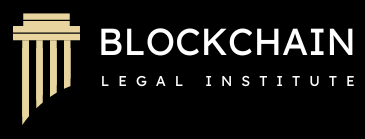
Blockchain, Digital Assets, and Cryptocurrency Policies in the Netherlands
The Netherlands is recognized for its progressive stance on blockchain technology, digital assets, and cryptocurrency. The Dutch government and regulatory bodies have created a conducive environment for innovation while ensuring compliance with international standards. Here’s an overview of the policies, and the key players involved in the blockchain ecosystem.
Policies Related to Blockchain, Digital Assets, and Cryptocurrency:
- Regulatory Framework:
- The Dutch Financial Markets Authority (AFM) and the Dutch Central Bank (DNB) are the primary regulators overseeing cryptocurrency activities.
- Cryptocurrency service providers are required to register with the DNB, ensuring they comply with Anti-Money Laundering (AML) and Counter-Terrorist Financing (CTF) regulations.
- The Netherlands is compliant with the European Union’s Fifth Anti-Money Laundering Directive (5AMLD), enhancing transparency and security in cryptocurrency transactions.
- Taxation:
- Cryptocurrencies are subject to capital gains tax in the Netherlands. Individuals must declare their crypto assets in their annual tax returns under “other assets.”
- Businesses dealing in cryptocurrencies are taxed on their crypto earnings according to standard corporate tax regulations.
- Blockchain Policies:
- The Dutch government encourages the use of blockchain technology across various sectors through initiatives and pilot projects.
- The Ministry of Economic Affairs and Climate Policy promotes blockchain adoption to enhance transparency, efficiency, and trust in public and private sectors.
Universities Involved:
- Delft University of Technology (TU Delft): Known for its research in blockchain applications and cryptographic techniques.
- University of Amsterdam: Offers courses and conducts research on blockchain technology, digital currencies, and their socio-economic impacts.
- Eindhoven University of Technology: Focuses on blockchain’s technical aspects and its integration with other emerging technologies.
Associations and Organizations:
- Dutch Blockchain Coalition: A public-private partnership aiming to develop and implement blockchain solutions.
- Bitcoin Nederland Foundation: Promotes the use of Bitcoin and other cryptocurrencies through education and advocacy.
- Blockchain Netherlands Foundation (BCNL): Connects and supports the Dutch blockchain community through events, networking, and information sharing.
Government Agencies:
- Dutch Central Bank (DNB): Oversees cryptocurrency exchanges and wallet providers, ensuring compliance with financial regulations.
- Authority for the Financial Markets (AFM): Regulates and supervises financial markets, including cryptocurrency activities.
- Ministry of Economic Affairs and Climate Policy: Promotes blockchain innovation through strategic initiatives and funding.
Private Businesses:
- ING Bank: Actively researches and develops blockchain applications for financial services.
- Rabobank: Explores blockchain technology to enhance banking services and operations.
- Bitonic: One of the largest cryptocurrency exchanges in the Netherlands, providing a platform for buying and selling Bitcoin.
- NXchange: A blockchain-based trading platform enabling the issuance and trading of securities.
The Netherlands continues to be a significant player in the global blockchain and cryptocurrency landscape, fostering innovation through supportive policies, robust regulatory frameworks, and active participation from academic, governmental, and private sectors.
Return to this page frequently for updates.
Digi Digi.me allows users to centralize their digital footprint—social media, financial, health data, and more—which can be useful for digital asset management.
